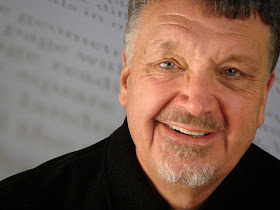Author Ramsay Wood will be speaking at the American Language Center in Fez this Thursday, about his two extraordinary volumes of collected stories. These recount some of the world’s oldest tales about animals and also tell us about the human condition.
 |
| Author Ramsay Wood |
"Humanity goes back to our relationship with animals," says Wood, on the phone from his London home.
It is not surprising then, that the stories travelled across languages, cultures and religions and have been retold for more than 2500 years. "Some of the original stories go back to the time of the Buddha", he says.
In the 1970s, Wood became fascinated by The Pancatantra, an ancient Indian collection of stories, after a journalist friend loaned him a copy. He decided to compile a modern version. It was to be the first time they had appeared in English since 1570.
"It appealed to me as a chess puzzle freak," Wood says. "I didn’t think anyone had dealt with the puzzle. How come it crosses so many boundaries? Does it come from the Buddha or from Hindusim? There is no way of knowing."
One of the reasons the animal stories hadn't been retold in modern times was because of the oral tradition they came from, which is not regarded as literature. "We live in a text trapped society", says Wood.
His great skill is in storytelling, rather than an academic approach, which makes his books lively and engaging.
"A lot of my stories are about trying to do something - you may come to a bad end, but you have to be brave. As the Persian Sufi poet Saadi said, "Deep in the sea there are riches beyond your imagination. But if you seek safety, that is at the shore."
The stories in Kalila and Dimna don't have a moral to them, unlike Aesop's Fables, "but rather a story you can figure out yourself," says Wood. "These stories do something for you, rather than just make you feel goopy. They don’t have just one answer (what you take from them) depends on you and where you are in your life."
Wood was born in Texas in 1943 and his father was a US diplomat. He has lived in Vietnam, the Philippines, Scotland and France. As a teenager, he was apprenticed to the renowned photographer, the late Henri Huet. After leaving Harvard in 1964, he worked as a freelance photojournalist in Britain, East Africa, and Pakistan.
After moving to the UK and founding a picture-frame company, Wood became a founding member of the College of Storytellers in 1981. These days, as well as doing his own writing, he teaches literacy and keyboard skills part-time to dyslexic children.
In his dedication to re-telling the stories of Kalila and Dimna for the modern age, how did Wood select the definitive version of the story?
"it's like being a cook," he explains. "You chose the version that you think works best."
Stories are one of the most significant things we have to exchange as humans. As well as binding us and give cohesiveness to communities, they are also essential for passing on information across time.
"The World is much more mobile than we give it credit for," says Wood. With the advent of the Internet, that has become even more true.
Copies of his first volume, Kalila and Dimna: Fables of Friendship and Betrayal, will be available for sale on Thursday evening and you can get them signed by the author. The second volume is published in December.
When: Thursday October 20 at 5pm
Where: Room 1 at the ALC/ALIF Centre, Ville Nouvelle, Fez.
Cost: Free
Story: Suzanna Clarke
SHARE THIS!



So beautiful the site.Thank you.
ReplyDelete